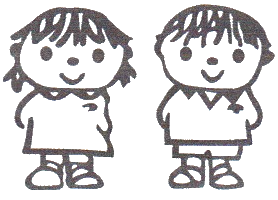ACCIDENT AND INCIDENT RECORDING POLICY
Sometimes a minor accident may happen during the Pre-School day. If your child has an accident the details of what happened and any resulting treatment will be recorded and reported to you. This is now done by email to minimise direct contact with other individual’s. Children will be given a sticker to also alert you to the fact that your child has had an accident in setting.
If a child should require a doctor or hospital treatment we will contact you immediately so please keep your own and emergency contact details up-to-date by informing the manager or key worker of any changes.
An accident is when a child hurts or injures themselves while an incident is when something happens that is detrimental to the health and welfare of a person using the service.
For example:
• a child leaving the premises unaccompanied
• a child protection matter
• a near miss that could have resulted in harm
• when restraint may have been briefly used to keep a child safe.
In some cases an incident may result in injury.
Incidences of illness and sickness in children and staff need to be recorded daily on the register and reviewed daily so as to prevent or take quick action in an outbreak of an infection.
The Manager/Deputy Manager must be made aware of, and read, the accident and incident books daily. More serious accidents and incidents may be required to be reported to the Care Inspectorate and or the Health Protection Team.
Any unforeseen events that result in harm or injury to a person using our services, which results in:
• A GP visit
• A referral to hospital
• An injury reported under Reporting of Injuries, Diseases and Dangerous Occurrences Regulations 1995 (RIDDOR) must be reported to the Care Inspectorate within 24 hours and all records should be available for inspection.
Providers must notify the Care Inspectorate immediately of a suspected or known outbreak of infection. An outbreak is the occurrence of two or more, or a higher than expected number of cases of confirmed or suspected infection, affecting people using the service and or staff in the same area.
If an accident or incident occurs:
• In the event of injury occurring staff should see that the child is safe and
comfortable then immediately alert one of the designated first aiders to assess and
deal with the situation.
• The member of staff who witnessed the accident or incident should record the
event in the accident.
• Staff must record:
the child’s name,
place where it happened,
date and time of accident/incident,
Give a clear and accurate account of the what happened and how the child reacted,
Any treatment given,
Any other action taken,
The member of staff must sign this record, along with any other members of staff who witnessed the incident or accident.
• If a child requires medical care then the manager should be informed and the
outcome should be recorded on the accident or incident form.
• In situations of serious injury written statement from other members of staff who
witnessed the incident and health professional should be retained.
• Parents must be shown the form when they pick up their child that day, they should
read the record of the incident / accident and then sign it. They should then be
given a copy of the record with the nursery retaining the other.
• If a parent refuses to sign the record they should be directed to a member of the
management team to discuss the matter further.
• Staff accident /incidents should follow the same guidelines but accidents should be
recorded in the Staff Accident Report Book.
• The manager will ensure that accidents and incidents to staff will be reported as
per RIDDOR when the criteria are met.
• A member of the management team will review the accident and incident books
daily and take action where necessary to avoid reoccurrences and to inform the
Care Inspectorate or other bodies if required.
• A daily risk assessment check using the Risk Assessment Checklist will be carried
out in all areas before children access them.
• Any actions will be recorded and carried out immediately where the risk is severe
or as soon as possible where it is minimal.
• In situations where the risk is severe and it cannot be rectified immediately, either
exclude children from the area or remove the item to an area where children cannot
access it.

